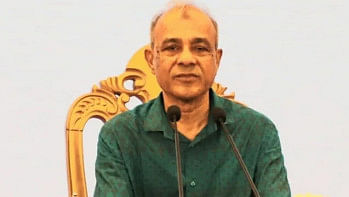Ensure women's rights
Speakers at a seminar yesterday called for effective steps to protect women's rights, which is increasingly being violated all over the world.
They called on the governments in South Asian countries to put in place mechanisms to ensure women's participation in decision-making with regard to healthcare, provision of clean water, sanitation and basic education.
Experts from the South Asian countries took part in the seminar on 'Globalisation, Reproductive Health and Rights' held in the city.
The Society for International Development South Asia Network (SID-SAN) and SID-Bangladesh chapter organised the seminar to mark the 16th International Day of Action for Women's Health.
"In many parts of the world, effective decentralisation of government has made it possible for local government bodies to have a bigger role in the planning and implementation of basic services, including healthcare. This has improved the chances of women and other disadvantaged groups to have a say and to receive a fair share of the benefits," said an expert from Nepal.
The speakers said the government should take into account social and economic conditions of all disadvantaged groups while taking up health projects, and allocate sufficient budget for health and basic needs.
They called on the governments to recognise that health is the outcome of socio-economic and political factors and address health needs holistically. Progress in improving people's health cannot be achieved through health sector programmes and medical interventions alone, they pointed out.
The experts said issues related to other basic services such as drinking water, sanitation, education as well as a healthy food chain and a healthy environment have to be considered in a synergistic approach along with the healthcare issues.
A multi-sectoral approach is also vital to contain violence against women and address the needs of violence survivors, they said.
Dr Jennifer Bennet of Pakistan pointed out that by and large, reproductive health in family planning is largely rationalised as distribution of contraceptives and oral pills.
She said, "Instead of promoting such 'Western ideas', our governments should invest more in women's education. And indeed, an educated woman would know more about her rights and surely she would demand its implementation."
Shirin Huq of Naripakkho said although most of the world's governments promised at Alma Ata in 1978 to achieve health for all by 2000, the ability of the world's majority to enjoy good health is still a far-off dream.
The speakers also said that many health services that were once free now have user fees as a result of IMF and World Bank Structural Adjustment Programmes and health reforms.
According to a WHO publication, the introduction of user fees has been demonstrated to result in decreased use of services and increased maternal moralities, they said.
They said practice of abortion under unsafe conditions contributes to 78,000 deaths each year and hundreds of thousands of women suffer from long or short-term disabilities.
Prof. Rehman Sobhan, chairman of Centre for Policy Dialogue, attended the seminar as chief guest while A S H K Sadique, former education minister and President of SID-Bangladesh chapter, presided.
Dr Qazi Kholiquzzaman Ahmad, chairman of Bangladesh Unnayan Parishad, Khawar Mumtaz, vice-president of SID International Governing Council, were present as special guests.
'Globalisation, Reproductive Health and Rights', a SID development journal, was launched at the inaugural session.

 For all latest news, follow The Daily Star's Google News channel.
For all latest news, follow The Daily Star's Google News channel. 



Comments